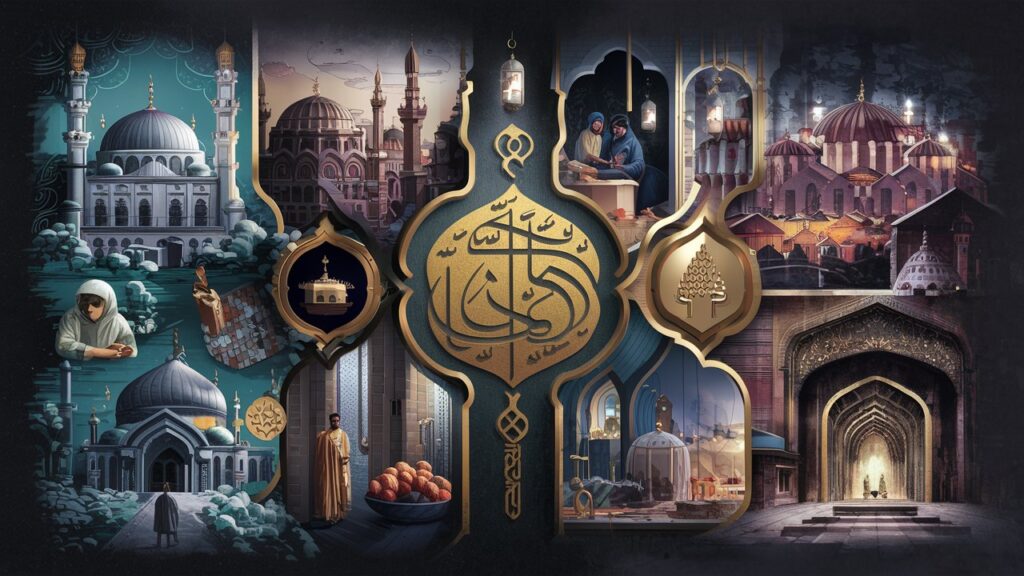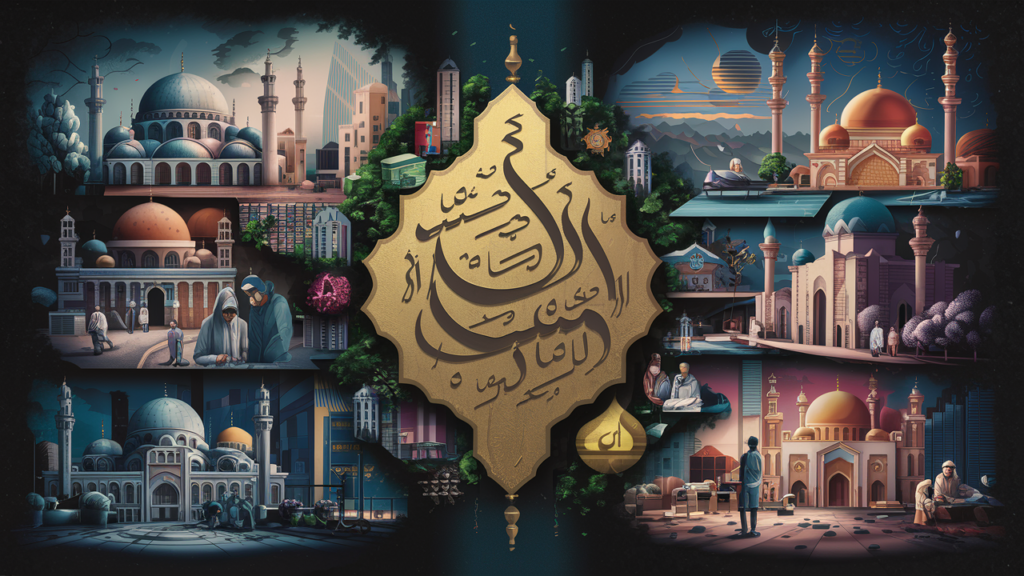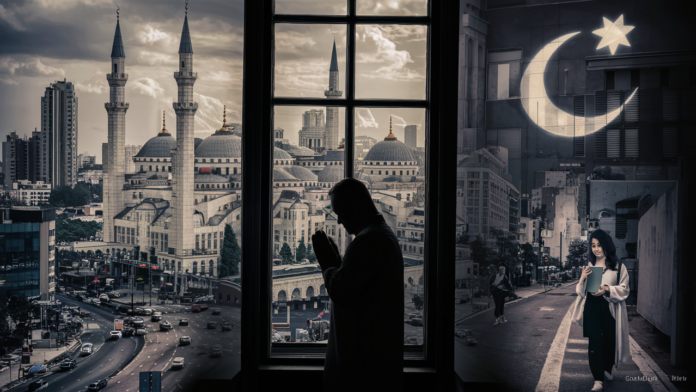In the vibrant tapestry of human experience, the question of how spirituality intertwines with secular life invites us on a journey through history, thought, and the essence of faith. This exploration is particularly intriguing when viewed through the lens of Islam, a faith that has, since its inception, offered a holistic view of existence, blending the spiritual and the secular into a single, unified way of life.
The Grammatical Dance of the Dunyawi
The notion of secularism, often perceived as a product of modern Western thought, actually finds its roots entangled with the spiritual from the outset. The Islamic term “dunyawi,” which refers to the worldly or secular, illustrates this complex relationship. Contrary to popular belief, the idea of the secular is not a novelty of early modern Europe but is as ancient as religion itself. The moment you delineate a realm of the divine, you’re immediately faced with the question of how this sacred domain interacts with earthly concerns.
The Qur’anic Perspective

Delving into the Qur’an, Islam’s foundational text reveals verses that champion the values of freedom of religion, personal responsibility, and mutual consultation. These principles, at their core, resonate with the essence of secular governance, where the focus lies on the equitable management of societal affairs, guided by collective reasoning and respect for individual conscience. The Constitution of Medina, attributed to Prophet Muhammad, is often cited as an early example of a secular constitution, establishing a framework for governance based on mutual rights and responsibilities among diverse communities.
The Evolution of Islamic Law
The development of Islamic law (Sharia) showcases an institutional differentiation where legal doctrines evolved separately from purely religious teachings. Medieval Islamic jurisprudence was characterized by a distinction between the laws governing worship and those organizing society. This separation reflects an understanding that while the spiritual and the secular may coexist, they serve distinct purposes within the fabric of Muslim life. The Hanafi school of thought, one of the oldest schools of Islamic jurisprudence, delineates between moral and remedial inviolability, signifying a nuanced approach to human dignity and rights within both spiritual and worldly contexts.
Secular State and Islamic History

Scholars like Abdullahi Ahmed An-Na‘im argue that a secular state, emphasizing constitutionalism and human rights, aligns more closely with Islamic history than contemporary interpretations of an Islamic state might suggest. This perspective underscores the adaptability of Islamic principles to a governance model that separates religious and state affairs, promoting a vision of society that safeguards the spiritual without compromising on civic responsibilities and freedoms.
The Quest for Certainty in a Secular Age
The discussion on secularism and spirituality leads us to the broader question of certainty and truth in the modern world. The Qur’an speaks of certainty achieved through knowledge, observation, and personal experience. In today’s secular age, this quest for certainty faces challenges, as societal focus shifts towards material and individualistic pursuits, often at the expense of spiritual depth and collective well-being. The erosion of shared sacred spaces and communal experiences raises critical questions about the nature of belief, community, and the human quest for meaning.
In Conclusion
The interplay between the secular and spiritual in Islam is not a tale of conflict but one of integration and balance. Islam’s holistic approach to life embraces the entirety of human experience, urging a harmonious existence where spiritual values inform and enrich the secular realm. This synergy between the spiritual and the secular invites Muslims and observers alike to reevaluate preconceived notions of secularism, understanding it not as the removal of religion from public life but as a framework within which diverse beliefs and practices can coexist, contributing to a just and equitable society.
In this light, the journey through Islamic perspectives on secularism and spirituality reveals not only the depth and flexibility of Islamic thought but also its enduring relevance in addressing the timeless human quest for justice, community, and connection to the divine.


